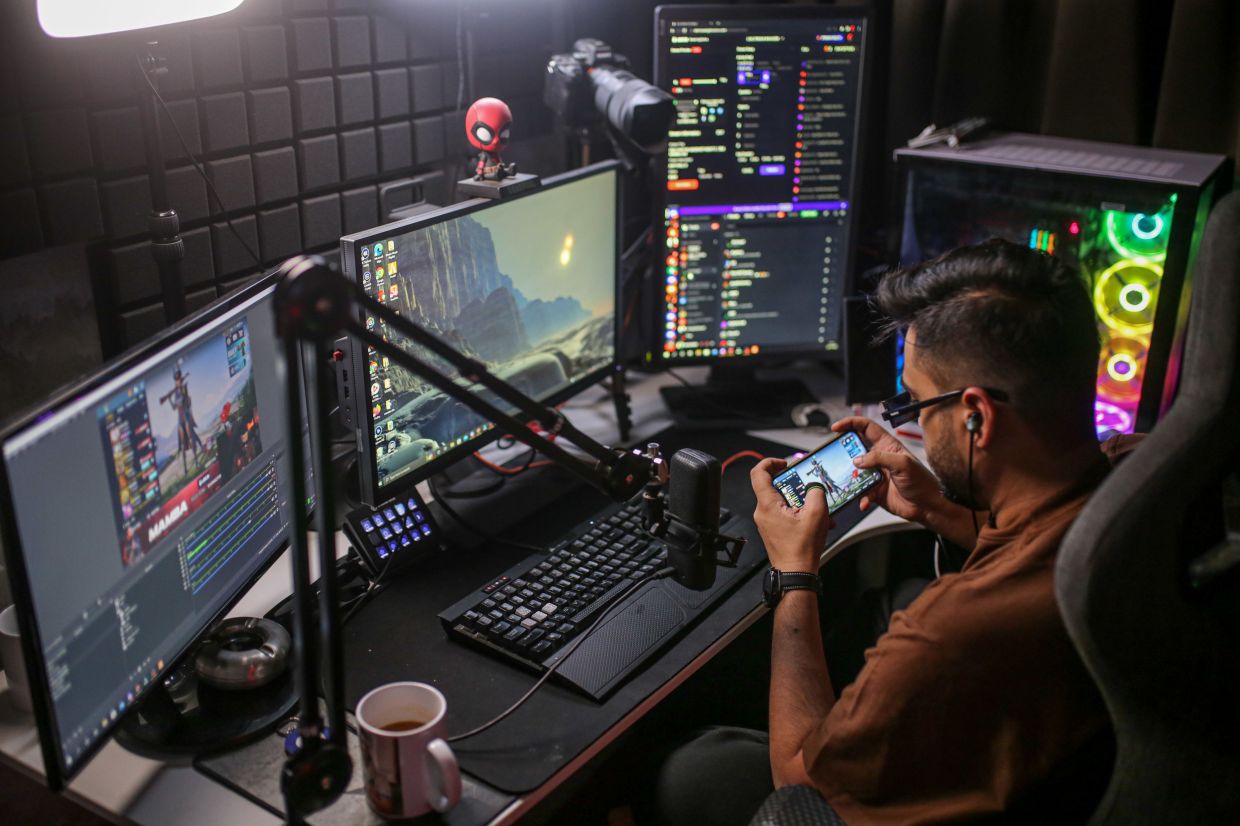
gaming industry
Tech by Android – The gaming industry evolves faster than almost any other entertainment sector, driven by cutting-edge technology and creative vision. Each breakthrough—whether in hardware, software, or network infrastructure—has the potential to change how players experience games and how developers create them. With billions of active gamers worldwide, even small innovations can have massive economic and cultural impact. This wave of new technologies is not just about graphics or speed; it is transforming storytelling, community interaction, and the very business models that define modern gaming.
“Read More: Gamma Rays Energy Radiation and Radiation Safety in Healthcare”
Artificial intelligence now allows games to evolve based on player behavior, creating dynamic worlds that never feel static. NPCs can learn, react, and change strategies over time, offering unique experiences for each player. Developers use AI to design procedurally generated environments, meaning no two playthroughs are exactly the same, which dramatically increases replay value and player engagement.
With powerful cloud servers handling the heavy processing, players can now enjoy high-quality games on lightweight devices, even smartphones. Streaming services like these reduce the entry barrier for new gamers and expand the market to regions where high-end PCs or consoles are rare. The shift to cloud-based gaming also changes how developers distribute updates and expansions, making content delivery faster and more efficient.
“Read About: Top Best Android Games of 2025 You Must Try”
Next-generation VR headsets now feature higher resolution, improved field of view, and precise motion tracking that makes digital worlds feel tangible. The addition of haptic feedback gloves and full-body tracking suits enhances immersion, allowing players to physically interact with game environments. This progress is not just for entertainment—VR also drives advancements in training simulations, education, and therapy.
The once-fragmented gaming community is now coming together as developers embrace cross-platform compatibility. Players on consoles, PCs, and mobile devices can compete or collaborate seamlessly, breaking down old barriers. This inclusivity strengthens multiplayer communities and allows friends to play together regardless of hardware preferences.
Blockchain technology is introducing verified ownership of in-game items, characters, and skins. Players can trade or sell these assets outside the game environment, creating real-world value. This shift changes how in-game economies operate and challenges traditional monetization strategies by giving players more control over their digital possessions.
With the rollout of 5G and advanced fiber connections, online gaming experiences are becoming faster and more responsive. Competitive titles, particularly in esports, benefit greatly from reduced input lag and higher stability, allowing players to react with near-instant precision. These improvements also enable more complex multiplayer experiences without performance issues.
Developers are now using algorithms to generate branching storylines that respond to every choice a player makes. Unlike scripted campaigns, procedural storytelling can adapt endlessly, creating personal narratives unique to each player. This level of unpredictability keeps games fresh and encourages multiple playthroughs to explore different outcomes.
Modern motion capture studios use dozens of cameras and sophisticated software to record even the smallest facial expressions and body movements. This technology makes characters more believable and emotional, enhancing both gameplay immersion and cinematic storytelling. Actors can now perform with greater nuance, knowing that subtle gestures will translate accurately on screen.
Spatial audio and real-time sound rendering place players in the center of a dynamic, reactive sound environment. Footsteps behind a wall, the echo of a cavern, or a distant explosion all change based on player movement and environment shape. This level of detail deepens immersion and provides strategic advantages in competitive games.
Powerful game engines, asset libraries, and online tutorials are making professional-grade development accessible to small teams and solo creators. As a result, indie games are becoming more innovative and visually polished, challenging the dominance of large studios. The democratization of game development means fresh ideas reach players faster than ever before.